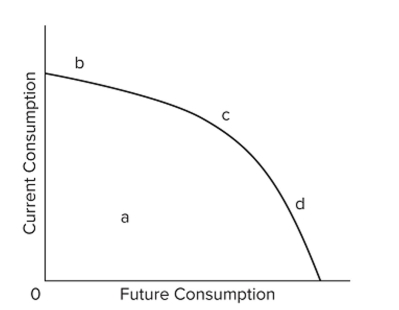Exam 6: An Introduction to Macroeconomics
Exam 2: The Market System and the Circular Flow274 Questions
Exam 3: Demand, Supply, and Market Equilibrium357 Questions
Exam 4: Market Failures Caused by Externalities Asymmetric Information222 Questions
Exam 5: Public Goods, Public Choice, and Government Failure242 Questions
Exam 6: An Introduction to Macroeconomics243 Questions
Exam 7: Measuring Domestic Output and National Income238 Questions
Exam 8: Economic Growth274 Questions
Exam 9: Business Cycles, Unemployment, and Inflation298 Questions
Exam 10: Basic Macroeconomic Relationships233 Questions
Exam 11: The Aggregate Expenditures Model126 Questions
Exam 12: Aggregate Demand and Aggregate Supply320 Questions
Exam 13: Fiscal Policy, Deficits, and Debt401 Questions
Exam 14: Money, Banking, and Financial Institutions265 Questions
Exam 15: Money Creation285 Questions
Exam 16: Interest Rates and Monetary Policy405 Questions
Exam 17: Financial Economics356 Questions
Exam 18: Extending the Analysis of Aggregate Supply268 Questions
Exam 19: Current Issues in Macro Theory and Policy279 Questions
Exam 20: International Trade339 Questions
Exam 21: The Balance of Payments, Exchange Rates, and Trade Deficits315 Questions
Exam 22: The Economics of Developing Countries269 Questions
Select questions type
Demand shocks may be positive or negative.
Free
(True/False)
4.8/5  (36)
(36)
Correct Answer:
True
The "sticky price" model is the only one used by macroeconomists.
Free
(True/False)
4.9/5  (28)
(28)
Correct Answer:
False
Citizens living in the richest nations today have material standards of living that are on average
more than 50 times higher than people living in the poorest countries.
Free
(True/False)
4.9/5  (31)
(31)
Correct Answer:
True
Sticky prices could be the result of firms being afraid of price wars.
(True/False)
4.8/5  (41)
(41)
Prices tend to be stickier in the shorter run than in the longer run.
(True/False)
4.9/5  (35)
(35)
Which of the following statements best describes price flexibility in the economy?
(Multiple Choice)
4.9/5  (41)
(41)
 Refer to the graphs. Suppose a firm is currently producing 500 computers per week and charging a price of $1,000. How will the firm respond to a negative demand shock if prices are flexible?
Refer to the graphs. Suppose a firm is currently producing 500 computers per week and charging a price of $1,000. How will the firm respond to a negative demand shock if prices are flexible?
(Multiple Choice)
4.8/5  (39)
(39)
(Last Word) Behavioral economics incorporates culture and the studies of
(Multiple Choice)
4.7/5  (30)
(30)
Harry's Pizza Parlor produced 10,000 large pizzas last year that sold for $10 each. This year Harry's produced 11,000 large pizzas (identical to last year's pizzas) but sold them for $12 each. Based on
This information, we can conclude that Harry's production of large pizzas
(Multiple Choice)
4.9/5  (41)
(41)
(Consider This) The term "economic investment" refers to money spent purchasing newly created
capital goods such as factories, tools, and warehouses.
(True/False)
4.9/5  (21)
(21)
On average, salaries and wages make up about 70% of all costs of the firm.
(True/False)
4.9/5  (30)
(30)
Which of the following statements best describes how firms respond to demand shocks under conditions of inflexible prices?
(Multiple Choice)
5.0/5  (38)
(38)
An unexpected negative demand shock would lead to a decrease in real GDP when prices are
inflexible.
(True/False)
4.9/5  (27)
(27)
If the prices of goods and services were flexible, then the economy could always produce at its
optimal capacity.
(True/False)
4.9/5  (38)
(38)
If expectations were always met, then firms would never contribute to any of the short-run
fluctuations in employment and output that are observed in real-world economies.
(True/False)
5.0/5  (28)
(28)
Inflation reduces the purchasing power of a person's income and savings.
(True/False)
4.8/5  (38)
(38)
Prices for airline tickets change hourly. This would suggest that airline ticket prices are
(Multiple Choice)
4.9/5  (37)
(37)
 One principle of economic growth is the notion that, to raise living standards over time, an economy must
One principle of economic growth is the notion that, to raise living standards over time, an economy must
(Multiple Choice)
4.8/5  (29)
(29)
Economists believe that most short-run fluctuations are the result of supply shocks.
(True/False)
4.9/5  (30)
(30)
Showing 1 - 20 of 243
Filters
- Essay(0)
- Multiple Choice(0)
- Short Answer(0)
- True False(0)
- Matching(0)